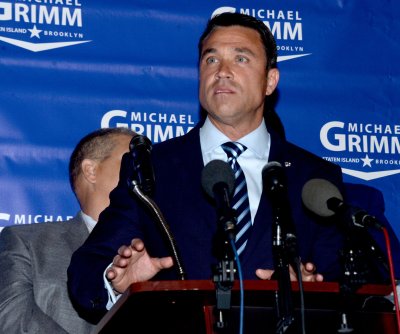President Trump Grants Clemency to Political Allies and Notorious Figures in Historic Pardons
In a significant move on Wednesday, President Donald Trump issued a series of pardons and commutations, extending clemency to a diverse group of individuals, including former political figures, entertainers, and individuals convicted of serious crimes. This latest batch of presidential pardons underscores Trump’s ongoing use of executive authority to influence the criminal justice landscape, often bypassing traditional channels such as the Department of Justice.
High-Profile Pardons for Political Figures
Among those pardoned was Michael Grimm, a former U.S. Representative from New York, who served from 2011 until 2015. Grimm, who was convicted of tax evasion in 2014, served a seven-month prison sentence. Despite his legal troubles, Grimm attempted a comeback in 2018 but was unsuccessful in the Republican primary. Notably, Grimm’s pardon was granted shortly after he publicly conceded defeat in his political race. Grimm, 55, has also worked as a media personality for Newsmax from 2022 to 2024 and was involved in a notable incident last year when he was injured in a fall from a horse during a polo match.
Another prominent figure granted clemency was John Rowland, the former governor of Connecticut, who served two separate federal sentences. Rowland resigned from office in 2004 following allegations of election fraud and obstruction of justice. In 2015, he received a 30-month sentence for illegal campaign activities, marking a significant chapter in his political career.
Pardons for Corruption and Financial Crimes
The president also pardoned Jeremy Hutchinson, a former Arkansas state senator, who was sentenced to 46 months in federal prison for accepting bribes related to election campaigns and committing tax fraud in 2014. Hutchinson’s family has a notable political legacy, being the son of ex-Senator Tim Hutchinson and nephew of former Arkansas Governor Asa Hutchinson.
Commutations for White-Collar and Federal Offenders
In addition to pardons, Trump commuted the sentences of several individuals, including Imaad Zuberi, a prominent donor who contributed $900,000 to Trump’s inaugural committee and also supported Democratic campaigns. Zuberi was sentenced in 2021 to 12 years for falsifying documents, obstructing investigations, and illegal lobbying activities. His sentence was reduced, allowing him to avoid further incarceration.
Controversial Cases and Limitations of Clemency
One of the most notable cases involved Larry Hoover, the co-founder of Chicago’s notorious Gangster Disciples street gang. Hoover, now 74, has been serving multiple life sentences since 1997 for running a criminal enterprise from behind bars. Despite efforts to secure his release under the First Step Act-signed into law by Trump in 2018-his request was denied by a federal judge, citing his status as one of Illinois’ most infamous criminals. Hoover remains incarcerated due to additional state charges that could impose a sentence of up to 200 years, which federal clemency cannot override.
Pardons for the Entertainment and Sports Worlds
The president also extended clemency to individuals from the entertainment and sports sectors. Rapper Kentrell Gaulden, known as NBA YoungBoy, was convicted of federal firearms violations last year. His sentence was commuted, and he was released from prison, with no further probation requirements. Additionally, Charles “Duke” Tanner, a former professional boxer, received a commutation for his life sentence related to drug conspiracy charges in 2006. Trump’s intervention allowed Tanner to avoid spending the rest of his life behind bars.
Broader Implications and Context
These pardons and commutations reflect President Trump’s strategic use of executive clemency, often favoring individuals with political ties or high-profile cases. While some argue that such actions serve justice and mercy, critics contend they undermine the rule of law and raise questions about fairness and consistency in the justice system.
As of 2023, the use of presidential pardons remains a contentious issue, with some experts warning that overreach could erode public trust in the legal process. Nevertheless, Trump’s latest actions demonstrate his continued influence over criminal justice decisions, shaping his legacy as a president who frequently employed the power of clemency to impact a wide array of cases.
Keywords: presidential pardons, clemency, Michael Grimm, John Rowland, Imaad Zuberi, Larry Hoover, NBA YoungBoy, Charles Tanner, criminal justice, executive authority

